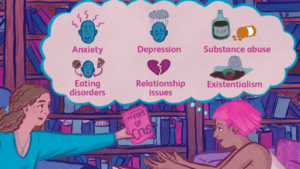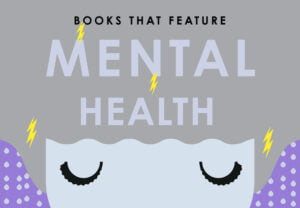Contents
- 1 What Is Bibliotherapy?
- 2 Benefits Of Using Books As Therapy
- 3 Where Bibliotherapy Is Most Used?
- 4 Why Should You Use Bibliotherapy?
- 5 Issues Bibliotherapy Can Treat
- 6 How To Find The Right Book For You?
- 7 Tips On Starting A Bibliotherapy Routine In Your Daily Life
- 8 How Does A Bibliotherapist Help?
- 9 Conclusion
What Is Bibliotherapy?
 A bibliotherapy is a form of therapy that uses books to help people deal with their problems. It can be used to help people deal with a wide range of problems, including depression, anxiety, and stress. Bibliotherapy has been used in a number of different settings, including classrooms and hospitals. It is also used by private therapists.
A bibliotherapy is a form of therapy that uses books to help people deal with their problems. It can be used to help people deal with a wide range of problems, including depression, anxiety, and stress. Bibliotherapy has been used in a number of different settings, including classrooms and hospitals. It is also used by private therapists.
Bibliotherapy is the use of books as a therapeutic medium to help with mental health concerns. The benefits of using books as therapy are numerous. One of the main benefits is that books are easily accessible and affordable. They can also be a great way to connect with other people who may be going through similar struggles.
There are a variety of books that can be helpful for mental health concerns such as depression, anxiety, and PTSD. Some of the most popular titles include The Bell Jar, The Great Gatsby, and Gone Girl. It is important to find a book that speaks to you and resonates with your experiences.
Benefits Of Using Books As Therapy

There are many benefits of bibliotherapy. One of the main reasons is that books are easily accessible and affordable. They can also be a great way to connect with other people who may be going through similar struggles.
Books that are related to your experiences can be especially helpful in bibliotherapy. These books can provide insight, hope, and comfort. It is important to find a book that resonates with you and speaks to your experiences.
- Books are an affordable way to work through personal mental health struggles
- Books can provide insight, hope, and comfort for those who are struggling with mental health concerns
- Bibliotherapy connects people by working through similar struggles together
- Books are easily accessible, which means people do not have to go out of their way to find them
- A lot of mental health concerns are relatable to books that are being published today
- Other forms of therapy can become expensive and frustrating, whereas books can be a cheaper and more readily available option for treatment
Where Bibliotherapy Is Most Used?
 The largest use for bibliotherapy is probably in public schools. Some teachers will choose to read books with their students as a way to help them better understand concepts that they are studying in class or as part of the curriculum. Many librarians believe that these sorts of reading aloud are an important part of the library program in schools. Although they are often undervalued by school administrators.
The largest use for bibliotherapy is probably in public schools. Some teachers will choose to read books with their students as a way to help them better understand concepts that they are studying in class or as part of the curriculum. Many librarians believe that these sorts of reading aloud are an important part of the library program in schools. Although they are often undervalued by school administrators.
Bibliotherapy is also used in private mental health treatment. Private therapists often recommend books for their patients to read depending on their symptoms or problems. For example, a therapist may recommend a book to help someone dealing with anxiety. The person reading the book usually has some choice over what he or she chooses to read. But there is usually an agreement between the therapist and patient that they both think the book will be helpful in helping the person deal with their problems.
No matter where it is used, bibliotherapy is most often used to help patients improve their mental health. It is important that people seek help from a professional, rather than try to use books on their own. As it requires the guidance of someone trained to deal with problems in therapy.
Why Should You Use Bibliotherapy?
I am currently working on an online bibliotherapy program where users can choose one of five mental health concerns they want to work on or feel most passionate about. Users will then get a customized reading list of titles that they can access on the website. I hope to expand this idea and create an app or program for it in the future.
Issues Bibliotherapy Can Treat
Bibliotherapy can be used to treat a variety of issues, such as depression, anxiety, PTSD, and other mental health concerns. Books that are related to your experiences can be especially helpful in bibliotherapy. These books can provide insight, hope, and comfort. It is important to find a book that resonates with you and speaks to your experiences.

- Depression-related issues, such as low mood and lack of motivation
- Anxiety-related issues, such as worries and fears
- PTSD-related issues, such as flashbacks or re-experiencing emotions that can be triggered by reminders of the event
- Self-esteem issues related to body image, sexual assault, breakups, bullying, etc.
- Other mental health issues, such as grief, disability, or chronic illness
How To Find The Right Book For You?
When starting a bibliotherapy routine, it is important to choose books that you find relatable. Try using positive self-talk while you read. Books that have changed my life include Anna Karenina, Me Before You, What Happened, The Perks of Being a Wallflower, Eleanor & Park, and Gone Girl. These are favorites that have helped me cope with the struggles I have faced in my personal life.
1) Pick a title that attracts your attention and sparks your interest (use keyword search).
2) The book should be related to your experiences. To do this, choose books by authors who have similar backgrounds or whose stories are relatable.
3) Stay away from long, complicated texts.
4) Set a daily reading time for the same time every day. Setting up this routine will help you to be more consistent and dedicated to your treatment, and this will lead you to better results.
5) Try using positive self-talk while you read. This is very effective because it can develop a habit of thought that will help you stay positive and optimistic throughout the day.
If you struggle with anxiety disorder specifically, you can read books that other people have found helpful for their own struggles. This can be a great way to connect with others who are going through similar situations and get an outside perspective from other readers. If you do not know where to start, try following blogs by authors or psychotherapists who write about a topic that attracts your interest. For example, if you like reading about women’s issues and relationships, try following a blog by an author who writes specifically on that topic.
Books That Can Help With Mental Illness
 Treatments for mental illness can include psychotherapy, medications, or a combination of both. Books about mental illnesses such as anxiety disorders or depression sometimes address similar issues like those experienced by people with mental illness. Books can also help you to learn more about your condition and how to treat it effectively, such as medications or therapy.
Treatments for mental illness can include psychotherapy, medications, or a combination of both. Books about mental illnesses such as anxiety disorders or depression sometimes address similar issues like those experienced by people with mental illness. Books can also help you to learn more about your condition and how to treat it effectively, such as medications or therapy.
Reading can help you to relate to others who might be going through similar experiences and share stories that may resonate with them. This encourages support for one another. Books by people who have these diagnoses. For example, if you yourself have depression, you can pick up a book that is targeted toward people with depression and see how it resonates with your own struggles. Books by authors who share similar experiences to yours (ie: authors who have mental illness themselves).
Focus on books that were written within the past few years. These books can be more relevant to the issues you are experiencing today since they were written in the present. Books that were rated highly within categories of mental illnesses (ie: self-help, mental health, addiction, 12 step programs) should also be good options for reading material.
Tips On Starting A Bibliotherapy Routine In Your Daily Life
Here are some tips for starting a bibliotherapy routine in your daily life-
- First, find a time of the day that you can dedicate time to reading.
- Second, pick a place to read. This could be your bedroom or your living room depending on what you have available.
- Third, after finding a time and place to read, set a specific amount of time for your reading session. You should start off with at least 20 minutes but can go up from there if needed.
- Fourth, put all other thoughts away and fully engage in what you’re reading. Get lost in the story and really take in the words that are presented on the page before you.
- Fifth, make a commitment to yourself to read for this duration every single day. In the beginning, stick to this routine even if you don’t feel like it. Eventually, your interest in reading will increase and it will become easier for you to sit down every day and explore the words on the page
- Sixth, reward yourself after completing your reading sessions. This is a great way to motivate yourself because when you finish reading, you can allow yourself to do something fun and relaxing such as watch TV, talk with a friend on the phone, or go out with friends.
After following this routine for some time and you feel like your interest in books has increased. Try choosing more challenging books that are specifically targeted toward what interests you most. You may also try listening to audiobooks in your spare time in addition to reading on your own. This can help you increase your focus when trying to read and is a fun way to connect with others by sharing stories.
How Does A Bibliotherapist Help?
 When someone begins therapy, they are usually asked about their reading preferences, habits, and favorite authors. Some therapists will take the time to get to know the patient’s favorite authors so that they can help recommend books. If someone is seeking therapy for a stress-related issue, for example, there are certain genres of books that might be recommended. A therapist may also help their patient find books in which characters deal with similar issues. Because it can be helpful for people to read about someone else dealing with the same problems.
When someone begins therapy, they are usually asked about their reading preferences, habits, and favorite authors. Some therapists will take the time to get to know the patient’s favorite authors so that they can help recommend books. If someone is seeking therapy for a stress-related issue, for example, there are certain genres of books that might be recommended. A therapist may also help their patient find books in which characters deal with similar issues. Because it can be helpful for people to read about someone else dealing with the same problems.
When choosing books for their patients to read, therapists are careful that they don’t have any words or concepts that might trigger traumatic memories in patients who are already dealing with anxiety or stress-related issues. Any book recommendations will be written down. So that they can help guide people through reading them.
Some of the best titles include The Bell Jar, The Great Gatsby, Gone Girl, Me Before You, The Perks of Being a Wallflower, and Eleanor & Park. These are all books that have helped me personally cope with different struggles I have faced in my personal life.
Conclusion
If you’re struggling with depression, anxiety, or any other mental health issue, there are plenty of self-help books out there that can help. The best way to learn about the different treatment options available is by researching them first and then finding a therapist who specializes in your problem area. You should also be open to alternative treatments like bibliotherapy because it may work for you. Bibliotherapy is all about using literature as therapy through reading texts that correspond with an individual’s particular emotional needs at their current stage of life. It has been proven to have therapeutic effects on individuals suffering from mood disorders such as depression and anxiety. But it often requires professional guidance if not done right. So make sure to consult your doctor before beginning this process too.
If you are looking for affordable Online Counseling MantraCare can help: Book a trial therapy session


